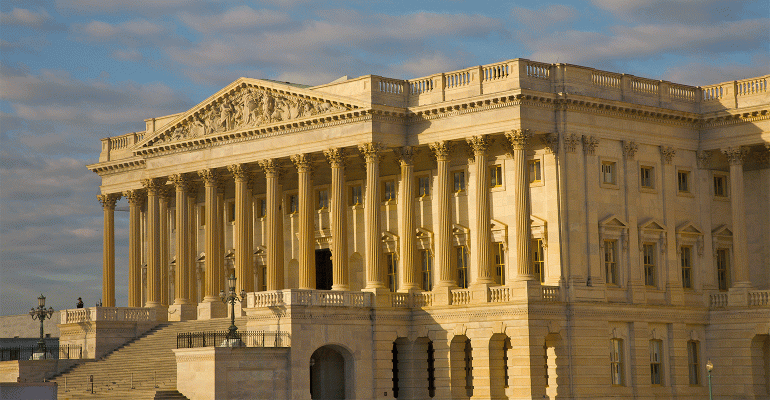Adding to growing concerns about the Paycheck Protection Program, attorneys general from 24 states and the District of Columbia on Wednesday urged Congress to fix the loan process to better protect the nation’s small businesses.
A letter to House and Senate leaders called for a number of changes to ensure better oversight and transparency of the Paycheck Protection Program, which has been fraught with problems. The attorneys general said they have fielded countless grassroots-level complaints and requests for assistance about the program, which prompted them to take action as members of Congress prepare to consider another round of stimulus funding. So far, Congress has approved $660 billion for the forgivable loan program, which many small businesses see as their only hope of survival.
The letter was signed by the attorneys general of Massachusetts, California, Colorado, Connecticut, Delaware, the District of Columbia, Hawaii, Illinois, Iowa, Maine, Maryland, Michigan, Minnesota, Nevada, New Mexico, New York, North Carolina, Oregon, Pennsylvania, Rhode Island, Vermont, Virginia, Washington State and Wisconsin.
At stake are the nation’s nearly 31 million small businesses, which comprise the core of the national economy, the letter said. Many of those businesses are restaurants.
The program has helped many businesses keep people employed, the letter noted. Nationwide in the first round of funding, more than 1.6 million loans were originated by nearly 5,000 lenders, and most loans were for $150,000 or less. However, that money ran out in less than two weeks leaving many small businesses empty handed.
And 45% of the first-round funding — or $152.4 billion — went to loans of more than $1 million, “suggesting that larger, more well-connected companies may have been better able to navigate the application process,” the letter said.
“Even the second round of funding looks likely to leave many small businesses underserved,” the attorneys general wrote. “The chasm between those who need this money and those able to successfully secure funding undermines the program’s stated purpose of providing emergency relief to all small businesses adversely impacted by the COVID-19 crisis.”
To improve the program, the attorneys general called for the following changes:
- Limit access to those that need funding. Publicly traded companies should be prohibited from applying, as should other companies that don’t require assistance. Currently, companies must self-certify that they need the funds, but that doesn’t go far enough, the letter said. “Program rules need to be explicit in ensuring that funds go only to those small businesses truly in need.”
- Fair access. So far, the SBA has been largely silent when lenders give preference to existing business customers. The rules should explicitly ensure lenders cannot favor certain categories of applicants to “eliminate even the appearance of favoritism or impropriety.” Instead, loans should be processed purely on a first-come, first-serve basis.
- Ensuring fair distribution. A portion of future funding should be allocated exclusively to minority-owned businesses, many of which do not have longstanding relationships with banks or other financial institutions. The letter also said funding should be disbursed more fairly geographically, based on metro statistical areas weighted by the number and size of businesses. And smaller banks and credit unions should be adequately represented.
- Better communication with small business. Many have been frustrated by the inability to get information or guidance from the SBA. Applicants should have direct access to a centralized portal to track the progress of their loans, rather than having to go through the lender.
- More flexibility. A key issue for restaurants here is the PPP deadline for forgiveness. Currently businesses have a time limit to rehire workers, and forgiveness depends on spending 75% of loan proceeds on salaries. Restaurants and sole proprietors normally allocate a smaller percentages of revenues to salaries, or “self-pay,” and will struggle to satisfy the forgiveness requirement, the letter said.
- More transparency. The SBA should be required to disclose more granular data on the loans “so taxpayers can understand how their money is being spent and to ensure no geographic area or type of business is greatly underserved.”
- Improved technical support. Businesses were confused by and frustrated with the online application platforms used by banks. The SBA’s own E-Tran portal also crashed repeatedly. More funding is needed to create a stronger digital infrastructure.
- Lender guidance. The SBA should direct lenders to implement the PPP program more uniformly, requiring the same documentation.
- Assist the unbanked and offer lender alternatives. The SBA should create a simple and straightforward on-ramp for the “unbanked” or “lesser banked” small business that don’t want to apply through their current financial institution.
The changes sought are similar to those called for by the National Restaurant Association, which earlier this week claimed a small victory as Treasury officials tweaked guidance to prevent employers for being penalized if workers reject the offer to return to their jobs.
The Independent Restaurant Coalition has also been pushing for a rewrite of PPP rules on behalf of independent restaurant operators, who are among the hardest hit by coronavirus-related shutdowns and loss of business.
For our most up-to-date coverage, visit the coronavirus homepage.
Contact Lisa Jennings at [email protected]
Follow her on Twitter: @livetodineout





